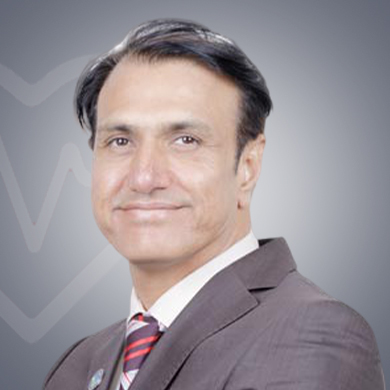
17 Years of experience
Speaks: English
One of the eminent ophthalmologists, Dr Muhammad Iqbal Khan treats a variety of conditions with high success rates. The conditions treated are as follows::
The treatment for dry eye is decided after an opthalmologist performs tests and evaluates the severity of the disease. The treatment options may include proper dieting, medications, and surgery. The doctor might use certain antibiotics for bacterial conjunctivitis. Antibiotics might lessen the duration of the infection.
Eye conditions can produce the below-listed conditions However, symptoms might vary from person to person. Every condition has its symptoms.:
It is important to go for routine eye examinations to diagnose the condition. If you have not undergone an eye examination for more than one year, you must consult your eye doctor. It is important to remain aware of the warning signs which can help you make the right decision for your eyesight.
Dr Muhammad Iqbal Khan is available for consultation between 10 am and 5 pm. The average working hours of the doctor are 47 hours a week.
Ophthalmologist Muhammad Iqbal Khan has performed a wide range of procedures. Some of the popular procedures performed by the doctor include:
LASIK (Laser in Situ Keratomileusis) uses a laser to reshape the cornea. This procedure uses a certain laser designed to treat vision issues, improve vision, and also reduce the need for glasses and contact lenses. The laser alters the shape of your cornea.

Share Your Experience about Dr. Muhammad Iqbal Khan

An ophthalmologist helps improve patients’ vision by testing the eyes in order to diagnose and treat disorders. Some ophthalmologists specialize in eye surgery to correct and fix eye problems. An ophthalmologist can provide the same services as an optometrist, such as prescribing eyeglasses as well as contact lenses to treat vision problems. While ophthalmologists are trained to treat and diagnose all eye problems, some ophthalmologists specialize in a certain field of medical and surgical eye care. They complete 1-2 years of additional training in one of the main subspecialty areas, including Pediatrics, Oculo-Plastic Surgery, and Neurology. They also participate in scientific research on the treatment for eye diseases and vision issues.
The tests required before and during the consultation by an opthalmologist include:
An opthalmologist may perform a number of different tests to evaluate your vision and diseases. Each test will evaluate some specific aspect of vision. The doctor may direct a beam of light in your eyes to look for any abnormalities in the retina. They design the treatment plan posts after evaluating the test reports.
Below are some situations when you need to see an opthalmologist:
If you notice the above-listed signs and symptoms, you are suggested to see an opthalmologist for a proper diagnosis of the condition. The opthalmologist will evaluate the test reports and will plan the treatment that is best for you.